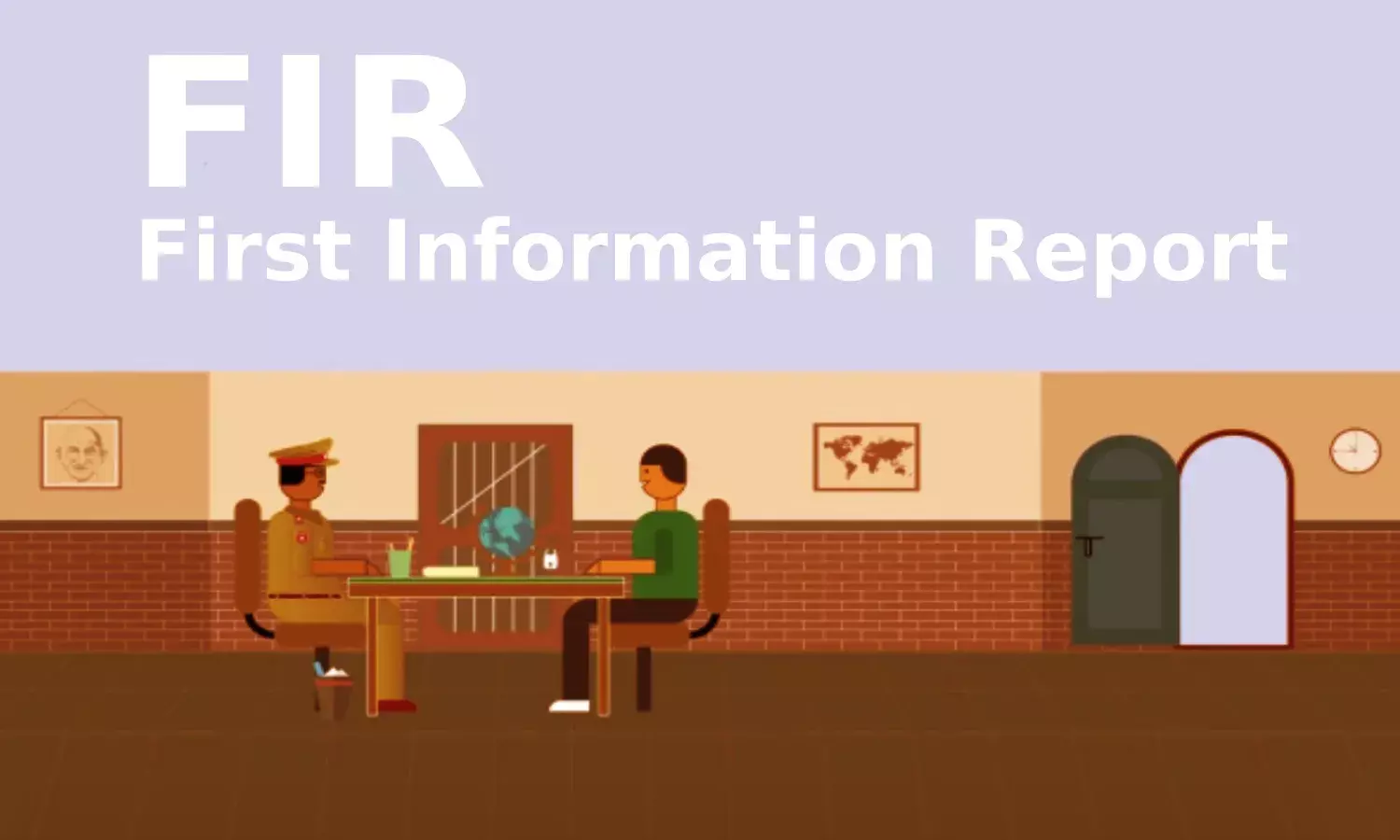Scam Alert: Facebook Fraud Preys On Unemployed Men With Bogus Pregnancy Offers!
A Facebook pregnancy scam targets unemployed men, using deceptive tactics to exploit vulnerability, and emphasises the importance of awareness and reporting cybercrime.

A recent and rather cruel fraud that appeared on Facebook is spreading based on the themes that are sensitive for unemployed men, especially for those who live in rural areas, promising them a variety of money earnings. Scammers place great adverts where they say that rich women will use surrogate mothers to give birth to a man’s child and will pay a considerable amount of money, including properties and all the luxuries in life.
These posts are usually followed up with beautifully polished images of beautiful women as a tactic to make it look legit. The victims then fall into this trap, and the scammers take the conversations to private groups and channels where they present a very elaborate story of confidentiality and compliance with the legal requirements. There is an increase in the pace at which trust is developed, and at some point, the fraudsters ask for other initial payments under the pretext of facilitation, legal, and or medical charges.
People, especially victims, are lured with the promises of getting a stable source of income, and they end up falling prey to the con artist’s scams once they take their money and run. This emerging trend further demonstrates that social engineering fraudsters will continue developing more creative ways to commit fraud. It, therefore, makes it even more crucial for the public and management of the affected organisations to be more aware and for the organisations to put in place better security measures.
Inside the Deception: Unmasking the Tactics Behind the Facebook Pregnancy Scam
False Promises and Fake Profiles: How Fraudsters Use Facebook to Lure Vulnerable Men
Criminals chose Facebook as their playground, creating stunning advertisements that can attract as many naïve victims as possible and offering impossible-to-complete services. These offers suggest that successful women are looking for their future baby daddies, who will be rewarded in kind with baby mamas, big dollars, fine homes, and more.
The posts are accompanied by graphic images of attractive women representing potential customers to enhance the message’s credibility and visual appeal. These visuals are thus carefully worked to bend the feelings and give the illusion of authority.

The posts contain contents that call for ambition or desperation that makes it hard for vulnerable men, especially the unemployed or those experiencing financial difficulties, to resist being exploited.
How Scammers Use Private Chats to Build Trust and Deceive Victims
It is a good idea to turn the conversation into direct messages as soon as the intended victim shows interest in their schemes. During these informal phone calls, they construct a complicated story to convince the victim of the authenticity of the deal. They usually present false legal documents, non-disclosure statements, or other forged legal papers and documents; the perpetrator claims these are crucial to maintaining the anonymity and dignity of the impostor, a ‘moneymaking’ client.

This detail and the professional approach of such stories are intended to break the victim’s suspicion and make them feel secure. That way, the fraudsters can exert more influence over their prey and, in some cases, influence them to agree to pay for other bogus charges that the criminals may come up with, such as legal processing fees and more. This comes in handy in making the scam believable and, to boot, trapping the victim in their net.
The Financial Trap: How Scammers Exploit Victims with Upfront Fees and Vanish
The financial trap is where the trick escalates; this is when the scam gets nastiest, targeting the victim’s hope and desperation. With the obtained credibility of their fabrications, the fraudsters bring in the concept of initial expenses under one pretext or the other. Such demands may encompass rational-sounding labels such as ‘processing fees’, ‘legal,’ ‘medical examination charges’, or any other similar phrase essential to seal the deal.
The amounts sought are usually chosen—small enough not to repel a likely victim but big enough to inflict severe losses. In hopes of being rewarded with large sums of money out of the prize, they keep thinking they are only one step away from a better life, so they yield to these demands.

After the scam is over and the money drops, the culprits go mute, disconnecting all means of communication with their victims. This leaves the victims financially destroyed but also emotionally shattered. This stage of the scam points at the sheer callous hearts of these fraudsters and how they plan to take advantage of vulnerability in every way possible.
The Fear of Embarrassment: Why Victims Stay Silent About the Pregnancy Scam
Nearly three individuals out of four never disclose the abuse because of shame and stigma. Most of the individuals affected by the pregnancy scam feel ashamed of being part of that ridiculous advertisement. They are embarrassed to be exposed to other people, peers, friends, or even their family for them to be tricked into such a personal and intimate scam.
Social shame, often present in more traditional or rural settings, will also dissuade victims from reporting crimes if they feel guilty about having been deceived. Shame again predisposes a victim to further criminal offences and discourages him from seeking help from the authorities because he will fear being lectured or not being believed.
Ignorance is Exploited: How Lack of Awareness Makes Rural Men Easy Targets for Scammers
One of the principal causes crucial to the sustainability of these frauds is that it is still poorly known among the target population, especially the unemployed men in the rural regions. Most of these people rarely have an opportunity to learn of online fraud or the various signs to look for in a scam. As they have yet to be introduced to the concept of digital literacy and, in general, have limited, if any, access to programs or resources on the net safety, they do not notice the tell-tale signs that would let them detect that this is a scam.
Phrases like ‘processing fees’ or ‘legal expenses’ may sound entirely legal to them, especially in terms of the gigantic monetary incentives promised to them. Also, rural communities get poorer access to education on cybercrimes, thus becoming easy subjects to the manipulations.

As a result, had these individuals not known some of the tricks that con artists often use, such as demanding first deposits or forging documents, they would have quickly fallen for these fake jobs. Their lack of awareness also makes them ideal targets and makes it challenging to fight similar cons on a large scale.
Barriers to Justice: The Challenges of Reporting Cybercrime in Rural Areas
Reporting cybercrimes presents many difficulties, primarily for victims who have decided to receive help from law enforcement authorities in rural areas of states, where the number of resources and available reporting systems is scanty. Some of the rural clients complain of poor internet connection, and they cannot easily access the internet reporting form or cybercrime helpline.
Additionally, the local police are sometimes likely to lack professional capacity and resource to tackle other complex cyber fraud investigations. The above reasons combined with other barriers such as language barriers, a lack of understanding of reporting and then prosecuting a crime or lack of trust in the new system.
)
Worrying, there have been no cybercrime awareness campaigns in these areas; hence, victims feel lonely and endangered. Such a shortage of resources and support is not only enough to scare people from filing reports but also amplifies the existence of these gaps and lets scammers have free reign to continue their criminal endeavours regardless of the damage inflicted on these affected communities. Therefore, strengthening the cybercrime reporting system in these areas is essential to address this growing threat.
Stopping the Fraud: Effective Strategies to Prevent Pregnancy Scams
People should be made aware of scams, especially if they are in vulnerable situations. Awareness on the Internet should be directed towards security and educating the public about common scams and tricks used by scammers. This can be achieved by running social media campaigns and community engagement programs such as workshops targeting rural people. It can prevent people who are victims of scams and build a community that better resists such schemes.
Sites such as Facebook should not allow scams to go unnoticed, as the web should tighten its surveillance methods to quickly eliminate fake posts. In combination with the application of complex analysis and moderation, it is possible to identify potentially malicious profiles, fake images, or too-tasty propositions.

It is also preferred that platforms set convenient ways for users to report scams and partner with cybersecurity specialists who can help anticipate future scams. Nonetheless, it is possible to prevent the spread of such scams through intense activities and efforts from social media firms.
Reporting scams remains an important step in addressing cyber crime hence it should be encouraged. Instead, law enforcement should provide friendly centres to report the crime, including helpline numbers, a mobile application, or other procedures that could use to report a crime in local cybercrime stations.
It is essential to empower victims to feel confident in seeking assistance if they experience harassment. Many victims hesitate to come forward because they fear being judged, laughed at, or facing retaliation from the perpetrator. Implementing awareness campaigns about reporting motives and sharing success stories of triumph against offenders can encourage victims to speak out.

Community vigilance is a vital means of combating scams and supporting victims. Neighbourhood organisations can be carefully designed networks that share information regarding known frauds and educate members on potential threats. By creating an open forum for discussion and a safe space for people to talk about being scammed, communities can eliminate the stigma associated with it while promoting collective action.
Community support systems can assist victims in filing complaints with authorities to hold scammers accountable. An empowered and informed community is less vulnerable to scams, thus serving as a deterrent against scammers.
Reporting Cybercrime in India: A Guide to Seeking Help and Justice
Reporting cybercrime has been made much easier with the help of dedicated websites and helplines. Online scam victims, including fraudulent schemes like the pregnancy scam, can be reported through the National Cyber Crime Reporting Portal at www.cybercrime.gov.in. The portal helps individuals in reporting a variety of cybercrimes, including financial fraud, identity theft, and harassment.
For immediate help, however, victims can also contact the Cybercrime Helpline 1930, which is explicitly designed to deal with financial cyber frauds quickly. Moreover, individuals can call for a First Information Report (FIR) at their nearest police station if they are seeking support in the physical world.

All the materials associated with the transactions – the messages, the screenshots or any other details – should be collected and then submitted to build a better case. People must be educated on these reporting channels so that more people can report such scams and the authorities can take appropriate action against those scams. People know that these reporting mechanisms are essential so that more victims report such scams and law enforcement can take swift action against those scams.
Shedding light on these scams is crucial to protecting vulnerable individuals and bringing fraudsters to justice. It is noteworthy that the police in Bihar have arrested eight people for this scam, and the increasing threat of such fraudulent techniques is emerging. However, the fact that similar posts on Facebook are cropping up means that more scammers are operating in the network.
The best and most vigorous defence is awareness, and that is by teaching people and communities not to fall for such deceptive moves and ways. Effective collaboration can work towards developing a safer digital environment that minimises the chance of getting exploited and ensures that perpetrators are brought to book.






